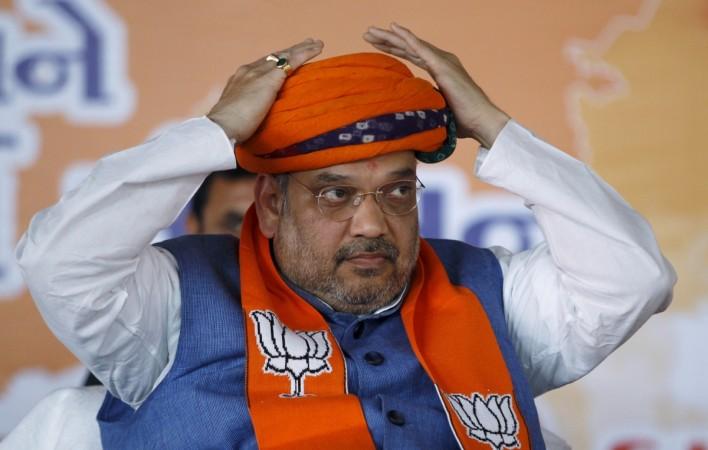
An RTI reply has revealed that a district cooperative bank in Gujarat which has BJP chief Amit Shah as its director managed to get the maximum deposits among such banks of banned currency notes of Rs 500 and Rs 1,000 that were put out of circulation after November 8, 2016.
According to the RTI reply received by activist Manoranjan S Roy, Rs 745.59 crore in demonetised notes were deposited in the Ahmedabad District Cooperative Bank (ADCB) in just five days after demonetisation was announced by Prime Minister Narendra Modi.
District cooperative banks were banned from accepting old Rs 500 and Rs 1,000 notes after November 14, 2016, to stop black money being laundered through these banks.
The website of the bank shows that Shah was the chairman of the bank in 2000 and continues to be the bank's director and has been in that position for many years.
Total deposits held by ADCB in March 2017 were Rs 5,050 crore and the net profit for 2016-17 was Rs 14.31 crore.
Another cooperative bank from Gujarat, Rajkot District Cooperative Bank, was just behind ADCB in attracting the most demonetised notes.
The bank, headed by Jayeshbhai Vitthalbhai Radadiya, a cabinet minister in the Gujarat government, got deposits of Rs 693.19 crore.
Rajkot is seen as BJP's base in Gujarat politics. Modi became an MLA for the first time from there in 2001.
The combined figures of the two banks dwarf the deposits made in the Gujarat State Cooperative Bank (GSCB), the top cooperative bank in the state, which got only Rs 1.11 crore as deposits.
"The amount of deposits made in the State Cooperative Banks (SCBs) and District Central Cooperative Banks (DCCBs) – revealed under RTI for the first time since demonetisation – are astounding," says Roy.
Also highlighted by the RTI queries was that only seven public sector banks, 32 SCBs, 370 DCCBs around 36 post offices across the country collected more than half — Rs 7.91 lakh crore — of the Rs 15.28 lakh crore collected through demonetised currency notes and deposited with the Reserve Bank of India.
The seven PSBs have 29,000 branches out of 92,500 branches of 21 PSBs in the country. The other 14 PSBs refused to reply to the RTI query. The number of post offices in the country is around 1,55,000.
Roy says it is a matter of concern if only a few bank branches, a handful of post offices, apart from SCBs and DCCBs accounted for more half of the deposits of old currency notes made redundant by demonetisation.
"Serious questions arise about the actual collection of spiked notes through the remaining 14 mega-PSBs, besides rural-urban banks, private, local cooperatives, Jankalyan Banks and credit cooperatives and other entities with banking licenses, the figures of which are not made available under RTI," he said.















